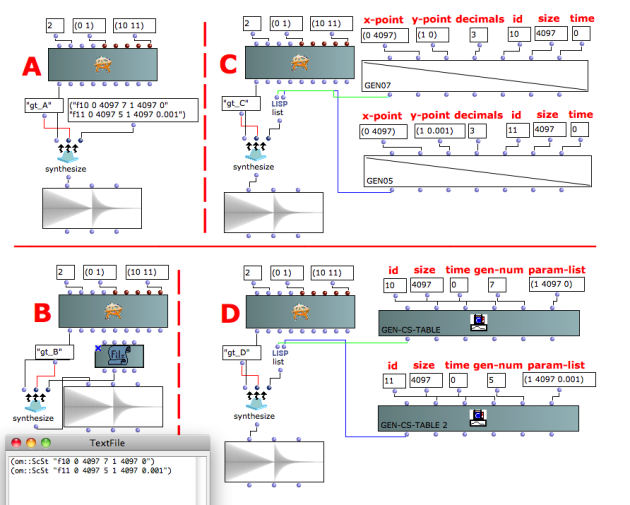Global tables
Global tables are tables passed to the keyword :tables of synthesize (to show it, select synthesize, type "k" and choose :tables in the list) and not to the input of a synthesis event. These tables must have a number, that will correspond to the precise f number used by Csound. It is this number (integer) that will have to be passed as an argument to the input of the synthesis event (only inputs that end with "env").
Tutorial Global Tables
This patch shows the usage of global tables in OMChroma. In these examples the tables are the amplitude envelope of the ADD-1 classes.
Example A
The tables are initialized by a string connected to the keyword inlet ":tables" of synthesize. These tables must exactly correspond to the syntax required by Csound. They are actually perfectly valid Csound instructions.
WARNING: if more than one table is specified, all the strings have to be included in a list.
Example B
The tables are initialized in a textfile object using the following syntax:
(om::ScSt "<Csound table definition>")
The <Csound table definition> within double quotes must exactly correspond to the Csound syntax (as in the example A).
REMARK: this specification is very practical when reusing the same tables in several synthesis processes, or when the tables constitute a data base.
Example C
The tables are initialized as GEN07 and GEN05 classes (as in the tutorial 01-Local tables).
WARNING: if more than one table is specified, all the strings have to be included in a list.
Example D
The tables are initialized as a GEN-CS-TABLE class (as in the tutorial 01-Local tables).
To grasp the difference between global and local tables read the next section.

